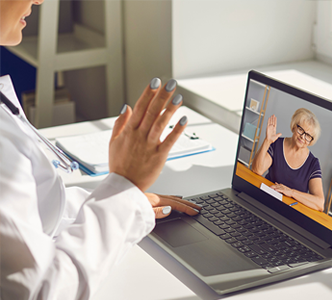AUDIOLOGY AND TELEHEALTH
Is there such thing as Telehealth in Audiology?

The use of telehealth has gained popularity in recent months due to Covid 19. But, what exactly is telehealth? The Health Resources and Services Administration (HRSA), an agency of the US Department of Health and Human Services, defines telehealth as the “ use of electronic information and telecommunications technologies to support long-distance clinical health care, patient and professional health-related education, public health and health administration”. In simplest terms, telehealth is the use of devices such as computers and mobile devices to remotely access and/ or provide healthcare services.
Telehealth and telemedicine are often used interchangeably. However, they are not the same. According to the World Health Organization, telemedicine refers to services provided strictly by physicians while telehealth has a broader scope and refers to services provided by other healthcare professionals such as Audiologists.
The audiologist at the clinic making real time adjustments and fine tuning hearing aids while the patient is in the comfort of their own home has been the primary use of telehealth in Audiology during the pandemic. While telehealth is not for everyone, it has been helpful to those who could not travel to the clinic for an in person visit due to their busy schedule or travel-related issues. Currently, it is very helpful to those who want or need to minimize exposure to Covid 19.
Requirements for Telehealth in Audiology
• Smartphone or Ipad
• Remote care App or link
• Remote Care Accessory (if required by manufacturer)
• Hearing aids
• Internet Connection
• A tech-savvy family member, friend or care giver (optional but helpful)
Preparing for your Remote Care Visit
• Download all necessary apps or links on your Smartphone or Ipad
• Ensure that your phones are fully charged for an uninterrupted connection.
• Ensure that Hearing aids have fresh batteries.
• Find a quiet spot to have a conversation
• Find a spot that has a strong internet connection
During the remote care visit
• Prepare for the remote care visit as if you would an in person visit.
• Wear your hearing aids
• Wear remote care necessary remote care accessory (if required by the manufacturer)
• Allow the Audiologist to end the session and not you to ensure that all the changes made to your hearing devices are saved.
After the Remote Care Visit
Try the new hearing aid settings. Contact the Audiologist if you have any further issues .
Not all Audiologists are offering telehealth services at the moment. It pays to ask if you are interested.

